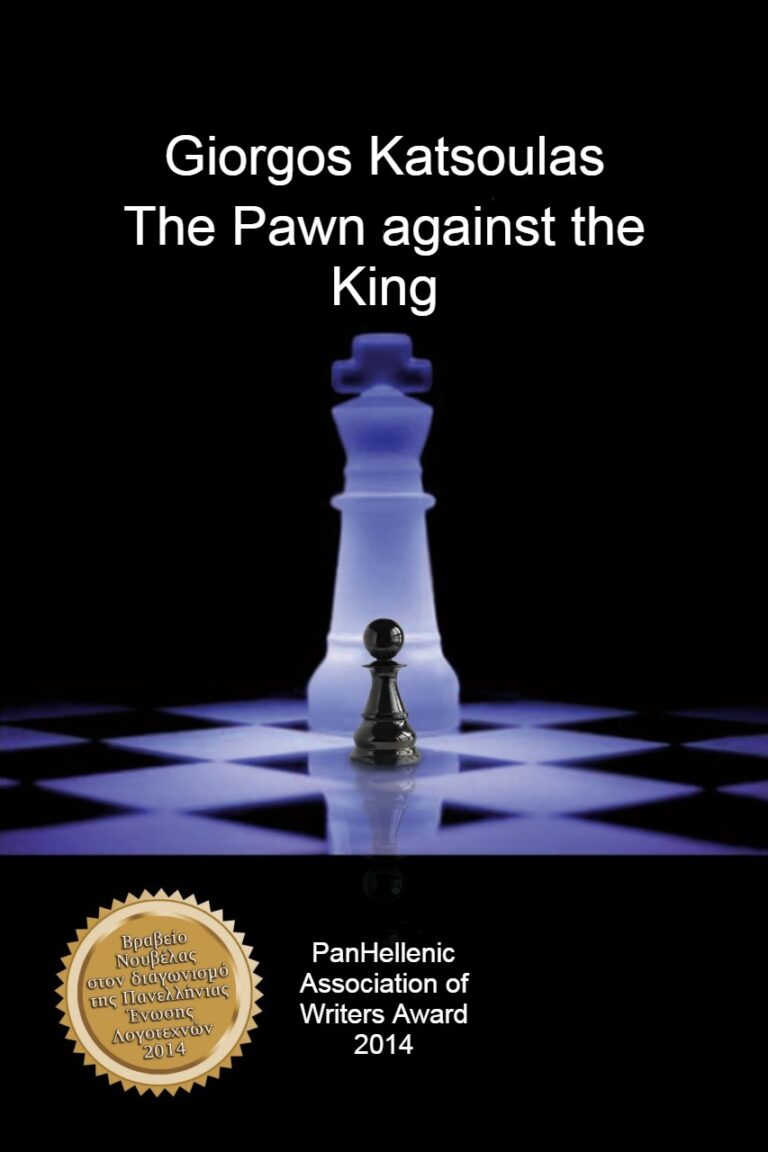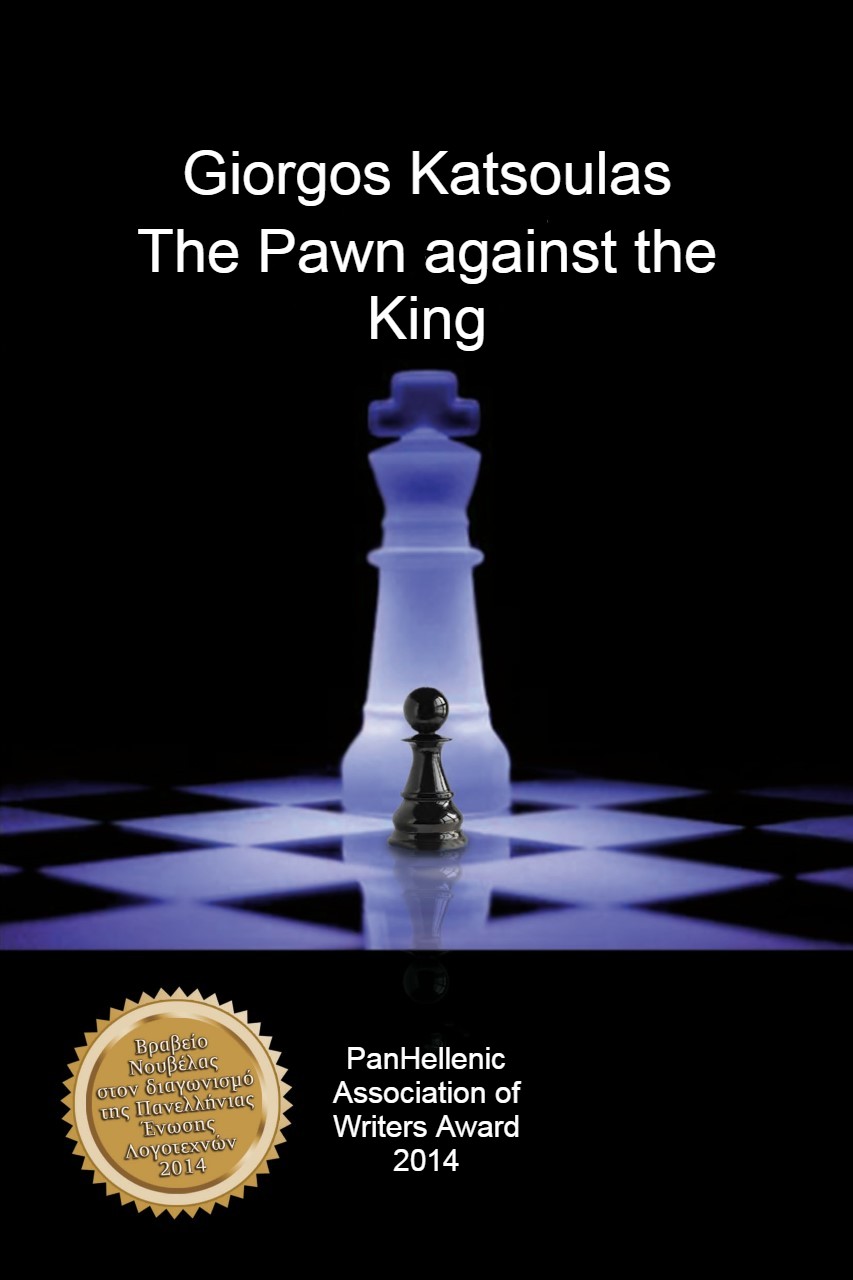In this taut short story that reimagines the creation of chess, a pauper appears before a king. The king has demanded the creation of a game that most perfectly represents the art of battle. Untold rewards will accrue to the one who succeeds; those who fail forfeit their freedom and are doomed to bondage. With his life hanging in the balance, one player arrives with an ulterior strategy to win.
Short stories are among the more technically demanding prose forms. Because there’s no space to fully elaborate a large structure, the form suits a small amount of powerful ideas that sparkle briefly and brilliantly. Conversely, each word in a short story must proportionally do more than any given word in a novel; there is no room for dead weight. This is the struggle of Giorgos Katsoulas’s THE PAWN AGAINST THE KING: it has an exceedingly straightforward premise from which it rarely deviates, and the prose isn’t powerful enough to develop greater interest on its own merits.
The reader is aware that the protagonist is explaining chess to the king with some ulterior motive, beyond simply ensuring his own freedom and receiving his just reward. The conversation is explicitly written in terms of chess strategy: a rhetorical question is a feint, a particular admission is a tactical retreat, a rebuttal is an attack. This figurative strategy is easy to understand, which is why it’s both straightforwardly successful and simultaneously unsatisfying; though it’s thematically resonant, it’s never developed in any meaningful way. The arc of the plot doesn’t entirely justify the metaphor, either. The ultimate victory requires neither strategic sacrifice nor special cleverness; all that mattered was the loser was distracted at the key moment of negotiation, which could have been accomplished just as well with a pleasant smell or distant song as with the game of chess. A short story only needs one really good idea to work, but THE PAWN AGAINST THE KING only has half of one.
Strong prose can still save a short story, but THE PAWN AGAINST THE KING stumbles a few times. There are some outright errors (missing close-quotes, subject-verb disagreement), which stand out sharply across these mere seven thousand words. But there are also unusual stylistic choices, which distract from the tension. The most notable is the repeated change of epithets for the eponymous Pawn and King. There’s no problem with some diversity to enliven the text and elucidate character, but here the text runs rampant: the protagonist is “the humble one,” “the common one,” “the ugly one who was buying time,” “the unimportant,” “the informal one,” “the trivial one”—even “the little guy” and “the other guy,” which feel both perfunctory and tonally disjunct. The king also comes in for this treatment, and again, it goes wide: a reader will start to wonder whether this is a lord, or a king, or an emperor. By the time the text calls him “the white Sheikh,” this propensity for renaming has become outright confusing—intermingling culturally specific terms and, therefore, obscuring the actual character.
A short story can be ambiguous or complex and still work, but in technical terms it needs to be clear and efficient. THE PAWN AGAINST THE KING needs a more profitable balance between plot, theme, and style to achieve that clarity and efficiency.
Giorgos Katsoulas’s THE PAWN AGAINST THE KING has strong vision, but it doesn’t quite bring enough to enliven the straightforward central conceit.
~Dan Accardi for IndieReader


